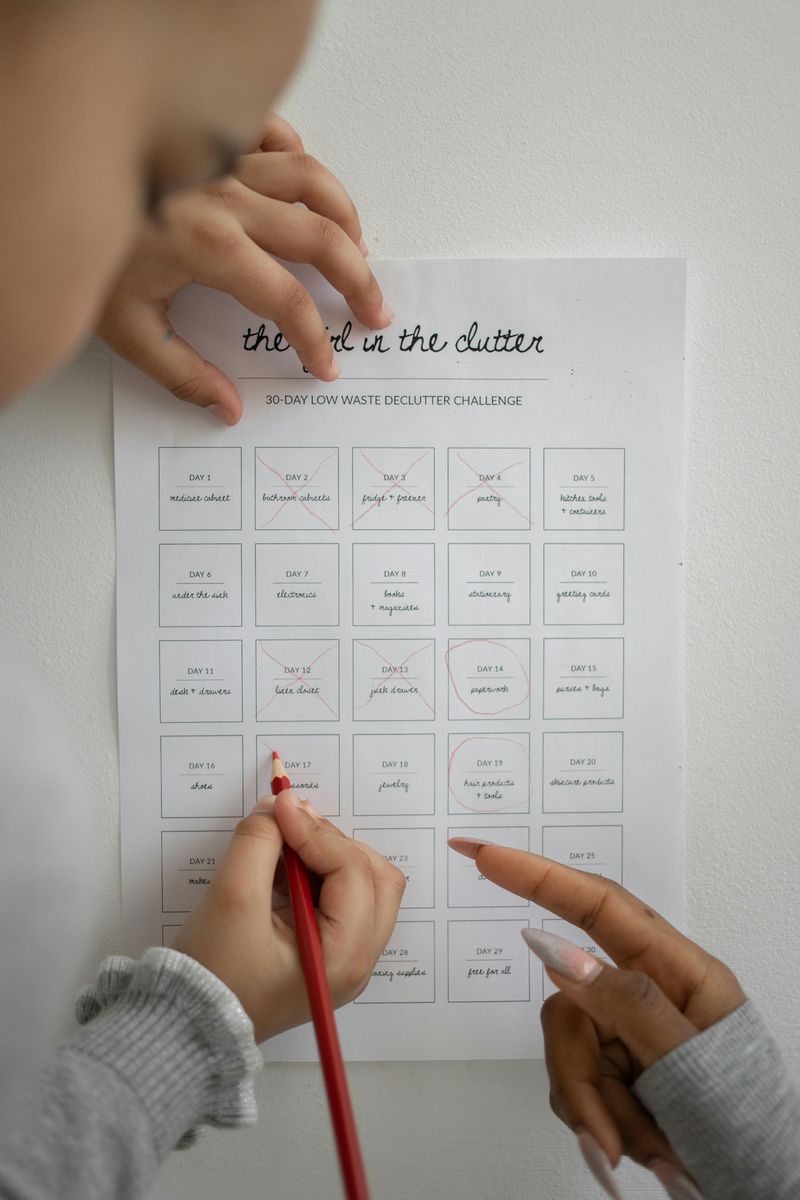Setting personal goals gives life direction and purpose, but achieving them can feel like climbing Mount Everest in flip-flops. I’ve spent years fine-tuning my goal-setting process through spectacular failures and sweet victories. Whether you’re dreaming of running a marathon or learning to bake the perfect soufflé, these practical strategies will help you turn those wishful thoughts into actual accomplishments.
1. Dream Big, Plan Small

The magic happens when you break colossal dreams into bite-sized chunks. I once tried writing a novel in a month and nearly had a nervous breakdown by day three. Now I set mini-milestones – perhaps 500 words daily – and celebrate each tiny victory.
These smaller targets create momentum while keeping overwhelm at bay. Your brain adores the dopamine hit from these regular achievements, making you more likely to stick with your grand plan when motivation inevitably wanes.
2. Get Gloriously Specific

Vague goals are the enemy of progress. ‘Get fit’ means nothing to your brain, but ‘complete 20 push-ups without stopping by March 15th’ gives your mind something concrete to work towards.
Specificity creates clarity, and clarity breeds action. When I switched from ‘save money’ to ‘put £200 monthly into my holiday fund’, my Caribbean beach dreams suddenly became achievable rather than wishful thinking.
3. Find Your Why

Goals without emotional fuel rarely survive the first obstacle. I’ve abandoned countless projects until I started connecting them to deeper values. Wanting to learn Spanish because ‘it seems useful’ didn’t motivate me, but ‘connecting with my partner’s family’ kept me studying through the subjunctive tense nightmare.
Your ‘why’ acts as an anchor during storms of procrastination. Write it down, make it visual, revisit it regularly – especially when motivation ebbs.
4. Schedule It or Forget It

Unscheduled goals are merely wishes floating in the ether. After years of ‘I’ll do it when I have time’ failures, I’ve learned that my calendar is sacred ground. If learning guitar matters, those practice sessions deserve dedicated slots in my week.
Treat these appointments with yourself as seriously as you would a meeting with the Queen. Block time, create reminders, and guard these periods jealously. The difference between dreamers and achievers often comes down to this simple habit.
5. Create Delightful Accountability

Left to my own devices, my willpower has the lifespan of a mayfly. That’s why I’ve built accountability systems that make goal abandonment awkward and achievement almost inevitable.
My running buddy waiting in the rain makes skipping impossible. The monthly book club forces me to finish novels. The writing group expecting my chapters keeps writer’s block at bay. Find someone – or something – that makes showing up non-negotiable, and success becomes the path of least resistance.
6. Track Progress Visibly

Nothing motivates like seeing how far you’ve come. My debt-free journey felt endless until I created a thermometer chart on my fridge. Each coloured section represented £1,000 paid off, transforming an abstract financial goal into a visual game.
The brain craves completion – it’s wired to fill gaps and finish patterns. Whether it’s a habit tracker, progress bar, or simple checklist, visual tracking systems tap into this psychological quirk, making consistency almost addictive.
7. Embrace Glorious Failure

Most people abandon goals at the first stumble, but seasoned achievers know better. When I missed two weeks of language practice during a work crisis, I previously would’ve binned the whole endeavour. Now I recognise these moments as valuable data points rather than moral failings.
Failure isn’t the opposite of success; it’s part of the process. The question isn’t whether you’ll stumble (you absolutely will), but how quickly you’ll dust yourself off and continue. This resilience separates temporary goal-setters from consistent achievers.
8. Harness Environment Power

Willpower is overrated – your surroundings silently shape your actions more than you realise. I struggled with mindless snacking until I redesigned my kitchen, placing fruit at eye level and hiding biscuits in hard-to-reach cupboards.
Make goal-supporting behaviours ridiculously convenient and goal-sabotaging actions deliberately difficult. Want to read more? Keep books everywhere and hide your phone charger. Trying to exercise? Sleep in your workout clothes and prepare equipment the night before.
9. Celebrate Small Victories

The journey to meaningful goals can feel endless without strategic celebrations along the way. After completing my first week of daily meditation, I treated myself to a fancy coffee – small reward, massive psychological impact.
These celebrations aren’t mere indulgences; they’re psychological rocket fuel. They create positive associations with progress, making your brain eager to continue. Just ensure rewards don’t contradict your goals – celebrating a week of healthy eating with an entire chocolate cake sends mixed messages!
10. Review and Recalibrate Regularly

Goals aren’t sacred tablets carved in stone; they’re living documents that deserve regular review. Monthly check-ins saved me from pursuing outdated ambitions that no longer aligned with my evolving values.
Ask yourself: Is this still important? Am I progressing? What’s working and what isn’t? These reflections prevent the twin traps of abandoning achievable goals prematurely or stubbornly pursuing goals that no longer serve you. Flexibility isn’t failure – it’s wisdom in action.
11. Find Joy in the Journey

The quickest way to abandon any goal is making the process utterly miserable. When learning piano became a joyless obligation, I nearly quit until discovering film soundtrack pieces that made practice delightful again.
You’ll spend far more time working toward goals than actually achieving them, so the process must contain elements of enjoyment. This doesn’t mean every moment sparkles with happiness, but if there’s no joy whatsoever in the journey, either change your approach or reconsider the goal entirely.